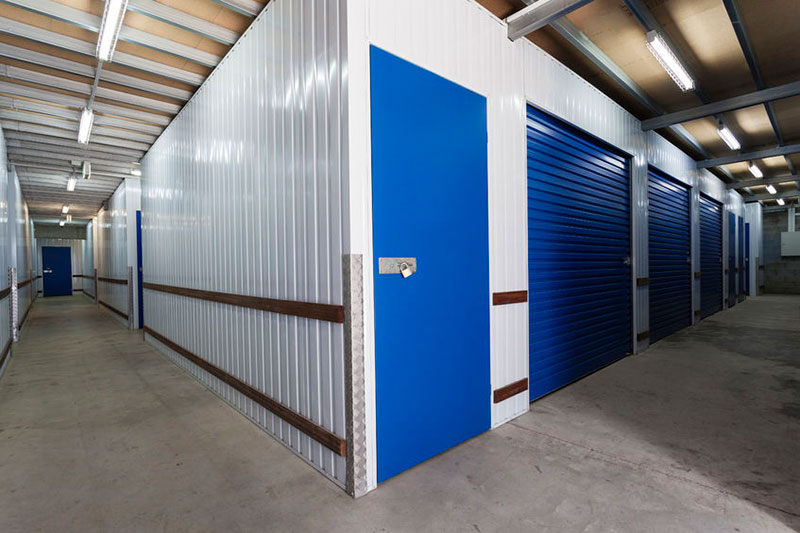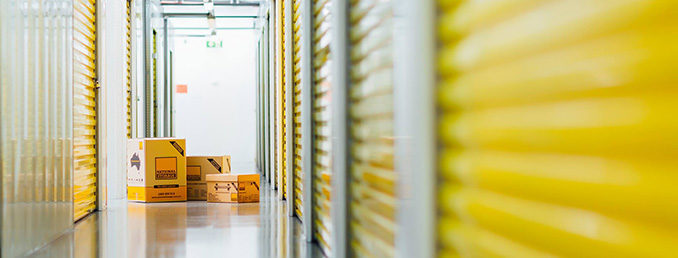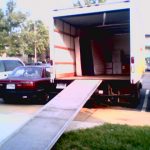When moving away for business or relocating to a new country, you can’t bring everything you own with you. If you have already returned your apartment to the landlord, then the only option left to you is the storage facility. I’m going to say that you need to be like Joe Goldberg when it comes to choosing a storage facility. He took the time to select one that is far away from the main doors and windows, (well if you don’t know Joe Goldberg, then watch You on Netflix). Coming back to the topic, there are many reasons to use a storage facility. You might need to move into a smaller place for a little while, and don’t want to get rid of your furniture and then have to buy all new things when you have more room again. Or you might just have too much stuff and too little storage space at home.

Whatever your reason, you will need to know how to choose a self-storage facility that suits your needs. Here are a few things to consider.
1) How much space do you need?
Self-storage facilities usually offer units in several different sizes. For instance, a small-size storage unit is typically about five feet by ten feet, which would hold the contents of a one-bedroom apartment if packed tightly. Ten feet by ten feet is another standard size for self-storage units and can keep the contents of a two-bedroom apartment or home. Garage-sized storage units are also common and are used for larger homes, or car storage.
Once you have figured out how much space you need, the first question you should ask each storage facility is what size units they have available. This way, you will be able to immediately eliminate any facilities that don’t have the size you need.
2) How long do you need the storage unit?
The length of time for which you intend to store your stuff can make a big difference when choosing between storage units. For instance, if you are only going to store your things for a couple of months, you will probably want to pay closer attention to rates and contract terms. On the other hand, if you are planning on long-term self-storage, then the amenities each facility offers may weigh a little heavier on your decision.
3) What features are most important to you?
When you start looking at storage facilities, it is essential to know which features you are willing to give up, and which you just have to have. For instance, if you are on a tight budget, the price will probably be one of your deciding factors. Someone who works odd hours might require a self-storage unit that doesn’t lockdown at 8 o’clock every night. Location is another thing many people aren’t willing to negotiate on, especially with current gas prices.

4) Is the monthly rate a move-in special, or an ongoing price?
Many storage facilities offer move-in specials to entice potential customers. Their goal is to make you sign the papers without continuing to shop around. Be sure to keep this mind, and don’t let them trick you: Ask how long the move-in special will last, and how much the regular rate is. If you need to use the storage unit for more than just a few months, you will probably want to compare regular prices as well as move-in specials.
5) How much is the deposit, and what are the terms?
Some self-storage facilities require a deposit. When you are comparing prices between units, be sure to ask how much the deposit is and what the terms are for getting it back after moving out.
6) What are the terms for moving out?
Even if you aren’t moving your stuff out of self-storage for a while, you will want to know a facility’s terms before committing to anything. Most self-storage facilities rent space month-by-month, which means that you can leave at any time. However, you will usually be required to notify the facility 30 days in advance.
7) What happens if you are late on a payment?
No one likes to think that they might not be able to pay their bills on time, but things do happen. Make sure you find out what the self-storage facility’s late policy is. Usually, you will be charged some fees according to how late you are, and if you wait too long to pay, your belongings will be sold or otherwise disposed of. Ideally, you will want a grace period of a couple of months before this happens – this way, if you fall behind, you will have time to get caught up without losing everything.
8) What amenities does the self-storage facility offer?
There are a variety of amenities offered by self-storage facilities. Some are climate-controlled, meaning that they are kept at a specific temperature (and sometimes a certain humidity, too); this type of environment is perfect for valuable items or collectibles that can be damaged by extremes in temperature or abrupt changes in humidity. Many have fences, gates, and security systems to protect customers’ belongings. Extended hours, special padlocks, and on-site management are other amenities self-storage facilities may offer.

9) Are you allowed to take the contract home with you?
Reading the contract for the first time during the sign-up process is dangerous for two reasons. One, the manager’s office is generally not a suitable environment for concentrating on difficult-to-understand legalese. Two, the manager is usually waiting for you to finish and sign, which puts a lot of pressure on you. Perhaps as a combination of these two factors, many people quickly skim the document and sign without fully understanding what they agree to.
If you can take the contract home with you, you will be able to take your time reading it. Another advantage is the ability to compare contracts between different self-storage facilities. The agreements will be similar in many places, but this way, you can also make sure you don’t agree to unfair terms that you could avoid by taking your business elsewhere.
Final Tips for Choosing a self-storage Facility
The best way to select a self-storage facility is to consider all your options carefully, and then choose the one that works best for you. This is easier said than done, however. When you are touring a storage facility, the manager’s sales pitch usually sounds very convincing, and the move-in special very enticing – which is precisely the point.
To make sure you don’t get sidetracked by convincing sales tactics, write out a list of the things you want to ask – then keep the file in your hand the entire time to make sure you remember to check it. Get the information first and make your decision later, when you can determine which self-storage facility best satisfies your needs.
Why Choose the Experts?
With over 100 years of expertise, Vic Leahy Removals & Storage assist you in all your moving and relocating needs throughout Melbourne South Eastern and Eastern Suburbs and Bayside areas. They are the experts to trust when it comes to storage facility needs.



